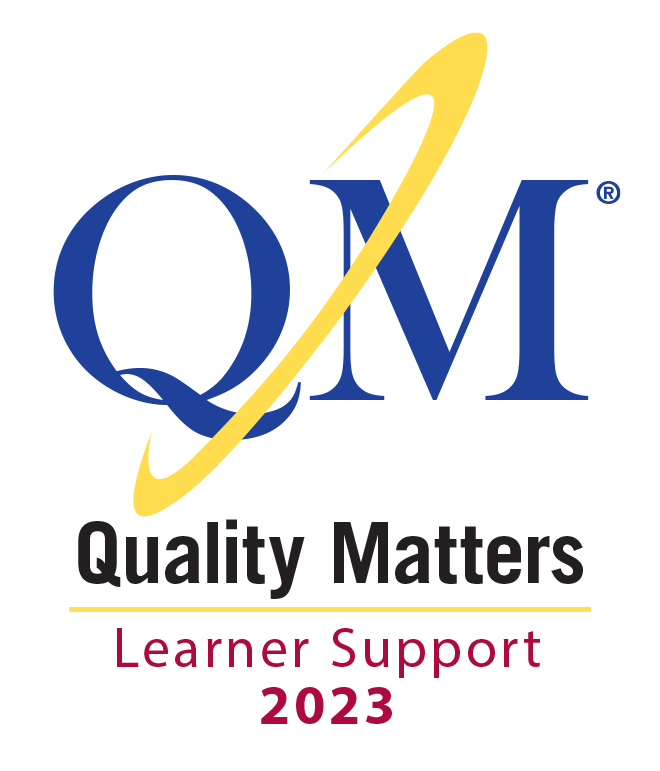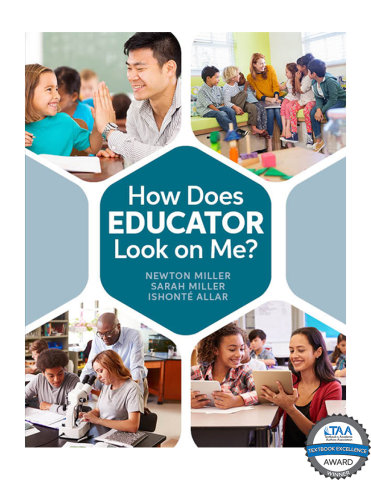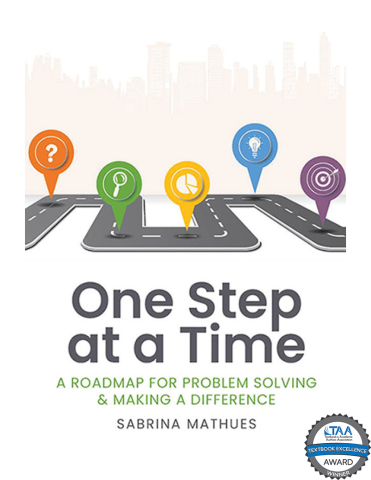Questions? Request Information
Support Diverse Learners
Are you driven by a desire to help children learn, grow, and develop? Early childhood experiences provide the foundation for all future learning and development. The online Bachelor of Arts in Early Childhood Development with Differentiated Instruction from the University of Arizona Global Campus (UAGC) will teach you how to support learning and early development for diverse learners.
The early childhood development with differentiated instruction bachelor's degree program will help you to understand typical and atypical early childhood development and will provide you with the skills to adapt learning environments to match the abilities of a wide range of students.
Upon completion, you will be able to:
- Synthesize theories, processes, and approaches in the study of early child development from diverse perspectives across domains
- Analyze theories which address the interrelationship of child, family, community, and culture on the growth, behavior, and development of children
- Compile evidence-based strategies that demonstrate an awareness of exceptionalities and cultural diversity within the field of early child development
- Assess the impact of contemporary issues and trends relating to the field of early child development and their multiple influences on current practice and knowledge
- Propose diverse models of inclusion to emphasize access, participation, and partnerships with children and families
- Apply professional and ethical practice with national standards to include critical thinking, individual, reflection, and collaboration
UAGC Award-Winning Curriculum
Military Students $250.00/credit
Undergraduate Courses $460.00/credit
Technology Fee** $115.00/course
Books and Other Class Materials** $125.00/average per course
Graduation Fee $150.00
Total Program Cost See UAGC Catalog¹
¹Keep in mind that this figure doesn’t factor in any potential discounts, partner benefits, or impact of accepted transfer credits, if eligible.

UAGC offers enrolled students access to ScholarshipUniverse, a platform that tailors external scholarship opportunities to your unique situation, making it easier to find and apply for scholarships.
UAGC is proud to provide reduced tuition rates for our academic and corporate partners, helping community college transfer students and corporate employees earn their degrees at a lower cost.


Course Overview
To earn your Bachelor of Arts in Early Childhood Development with Differentiated Instruction degree at the University of Arizona Global Campus, you must complete 120 credits. You will need to complete 30 upper-division credits, of which 18 credits must be from the major program. A total of 30 credits must be completed at the University of Arizona Global Campus to meet the residency requirement. You may be able to transfer approved credits from community colleges, other previous college coursework, or other life experiences such as military service or job training toward your degree.
*In this program, 3 credits from the major may also satisfy General Education requirements.
This program is not designed to meet the state educational requirements for teacher licensure or certification in any state. Students seeking teacher licensure shall carefully research their state's requirements prior to enrollment and regularly review the requirements as they are subject to change. Requirements vary by state. Graduates will be subject to additional requirements on a state-by-state basis that will include one or more of the following: student teaching or practicum experience, additional coursework, additional testing, or, if the state requires a specific type of degree, earning an additional degree. None of the University of Arizona Global Campus online education programs are accredited by the Council for the Accreditation of Educator Preparation (CAEP), which is a requirement for certification in some states. Other factors, such as a student’s criminal history, may prevent an applicant from obtaining licensure, certification, or employment in their field of study.
Alabama Students: Authorization to provide an education program does not indicate eligibility for an Alabama professional educator or professional leadership certificate. Applicants who complete an education or educator preparation program at a non-Alabama institution must apply for an Alabama professional educator or professional leadership certificate through the Alabama Certificate Reciprocity Approach. Current requirements may be found at https://www.alabamaachieves.org/teacher-center/.
Kentucky Students: Please be advised that although the University of Arizona Global Campus offers a variety of programs aimed at preparing potential educators in diverse settings, our programs are NOT accredited in Kentucky by the Education Professional Standards Board and are NOT recognized for initial, additional, or renewal of certification or salary enhancement (rank change) for K-12 educators in Kentucky. For more information, please visit the Education Professional Standards Board’s website at http://www.epsb.ky.gov/mod/page/view.php?id=220
Certain degree programs may not be available in all states.
The Online Teaching Support Certification recognizes programs that require all online faculty to undergo training in best practices for online course delivery, provide faculty with ongoing pedagogical support, encourage faculty professional development to increase their knowledge and skill in online teaching, emphasize instructor availability and feedback to learners, and collect and use feedback from learners to improve online teaching. Learn More

The Online Learner Support Certification recognizes programs that provide all the critical student and academic services needed for learner success and use learner feedback to continuously improve those services.

What Can I Do With a Degree in Early Childhood Development with Differentiated Instruction?
With BA in Early Childhood Development with Differentiated Instruction, some of the fields and career paths you may choose to pursue include:
- Teaching Assistants, Special Education
- Social Services Aide
- Special Education Aide
- Education Administration
- Special Services
- Tutoring Services
- Test Preparation
Your Bachelor of Arts in Early Childhood Development with Differentiated Instruction degree program will prepare you to work with young children and their families.
Gain insights into the early childhood development job market by reviewing the Bureau of Labor Statistics market outlook report.
UAGC gave me the time and freedom to serve my community and to work toward a career educating future generations.
Bachelor of Arts in Early Childhood Development with Differentiated Instruction FAQs
-
Differentiated Instruction is a teaching approach that tailors instruction to meet the diverse needs of all learners. In early childhood education, it's particularly important as young children develop at different rates and have varying learning styles.
-
Yes, this degree is ideal for individuals passionate about early childhood education and committed to providing high-quality, individualized instruction to young learners.
-
The Bachelor of Arts in Early Childhood Development with Differentiated Instruction degree from UAGC will teach you how to support learning and development for diverse early childhood learners. The early childhood development with differentiated instruction program covers developmental theories, assessment and intervention, as well as ethics and legal responsibilities. To personalize your education, your online degree program will also include a specialization.
-
Yes, you’ll have opportunities to connect and collaborate with students, alumni, and faculty through our online learning platform. For example, in our CHAMPS Peer Mentoring program, new students are matched with high-achieving, upper-division students for mentorship that promotes student success. UAGC also has student-run clubs and organizations online, so you can connect with peers outside of class.
-
Earning your early childhood development with differentiated instruction degree online gives you the ability to continue with your current responsibilities while attending college at the same time. Taking your differentiated instruction courses online can give you the flexibility to create your own schedule so you can complete your coursework more efficiently. As this program is ideal for professionals who are already employed in the early childcare and learning fields, pursuing your degree online will give you the flexibility to continue your pursuit of helping children grow while going back to school.
See What Else UAGC Has to Offer
Questions? Request More Information
To access this rate using the Liberty Grant, only eligible undergraduate active duty service members, members of the National Guard, Reservists, spouses of active duty, members of the National Guard and Reservists, Department of Defense employees using Tuition Assistance (TA), and civilian employees of the United States Coast Guard (only if utilizing Military Tuition Assistance) will qualify.
**
The Technology Fee covers access to University systems such as the online classroom, the Student Portal, and other academic resources. The Technology Fee and the Course Digital Materials (CDM) Fee are fully refundable if a student does not attend beyond Day 3 of a course (Week 3 if covered under the University of Arizona Global Campus Promise Refund Schedule). After this time, the fee becomes non-refundable. Students are charged the Technology Fee for repeated coursework. Students are not charged the CDM fee for repeated coursework if previously charged.
†
The transferability of credits is subject to the University of Arizona Global Campus transfer credit policies and requires the submission of official transcripts. The official transcripts will be evaluated by the Registrar’s Office to determine the credits that will officially apply toward a UAGC degree program. Credits must be earned at the same degree level in order to be applied. Additional restrictions may apply. See the UAGC Academic Catalog for full undergraduate and graduate transfer policies.





